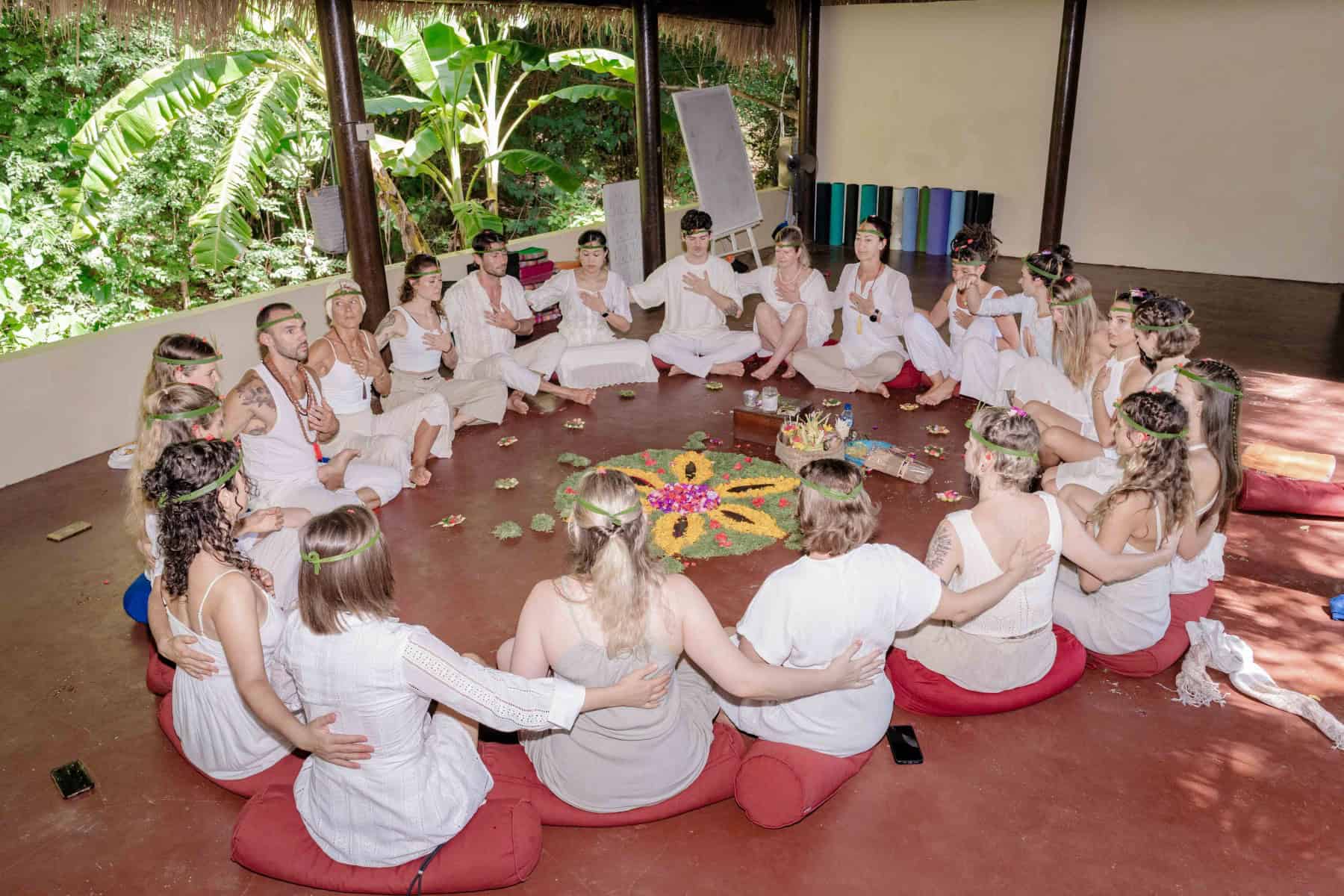Why Is My Yoga Teacher Training Vegetarian?

Some Yoga Teacher Training in Bali students often ask why our yoga teacher training offers vegetarian or vegan-only food. Some people who are used to eating meat regularly worry about being vegetarian for the duration of the yoga course but luckily, we have an amazing chef and most people don’t miss meat! Of course, there will be times when you can escape into the many culinary wonders that Ubud has to offer during your off days, but the real reason why many YTTs don’t serve meat comes from yogic philosophy!
One of the foundational principles of the Eight-Fold Path (Ashtanga) as laid out by Patanjali is Ahimsa, which means non-harming. It extends beyond physical actions and encourages compassion and kindness toward all living beings. Vegetarianism aligns perfectly with Ahimsa as it promotes a diet that avoids harm and suffering to any animals, a practice that derives from Hinduism. By choosing a vegetarian lifestyle, yogis aim to minimize the violence and cruelty associated with farming and animal agriculture and to avoid taking the soul of another living being. It is the first of the Yamas that you will learn about during your 200 hour yoga teacher training in Bali. The Yamas and Niyamas are a guide or set of codes that Patanjali wrote that point yoga practitioners towards a “right way” of living in order to achieve Enlightenment.
Yoga is not just a physical practice (yes, we’ve all heard this multiple times before!); it is a holistic approach that involves the mind, body, and soul. Many yoga practitioners believe that what we consume has a significant impact not only on our physical health but also on our overall well-being. A vegetarian diet in a YTT, rich in plant-based foods, is believed to be lighter, easier to digest, and more efficient in maintaining a clear and calm mind during this intensive training. It is thought to promote Sattva (purity) and balance the energy within the body. Yoga is not limited to the mat; it is a way of life that extends into our actions and choices. For many yogis, vegetarianism is a reflection of their ethical values and a commitment to living in harmony with the environment and all beings. By adopting a vegetarian diet, they aim to reduce their environmental footprint, support sustainable food systems, and contribute to the well-being of animals and the planet.
During your YTT with Yoga Teacher Training in Bali
During your YTT with Yoga Teacher Training in Bali, you’ll dive into the ethics as you study yogic philosophy. In yoga philosophy, Prana refers to the vital life force or energy that flows through all living beings. It is believed that foods have different energy that can either enhance or minimize our energy. Morning vinyasa yoga followed by a breakfast of plant-based foods, particularly fresh fruits, vegetables, nuts, and seeds, are considered to be high in Prana and are believed to promote vitality, clarity, and spiritual growth. Foods that have been commercially grown with additives, animals given antibiotics, or genetically modified foods have lower Prana and life force. By choosing a vegetarian diet, yoga teachers and students seek to enhance this pranic energy to support their spiritual practices.
It is important to note that while vegetarianism is common in many yoga teacher trainings in Bali, it is not a requirement to be a great yoga teacher after graduating. Rather it’s an opportunity to explore another way of living and approach to food and encourages you to be more mindful of your food choices. But every individual has their own unique journey and dietary choices. Yoga is a personal practice, and it is up to each person to find the balance that resonates with their own beliefs and values. During your stay with Yoga Teacher Training in Bali, no meal is ever the same so our students rarely get bored of the locally-sourced vegetarian food our in-house chef whips up! How you choose to take this forward after your yoga teacher training is always an individual choice.





